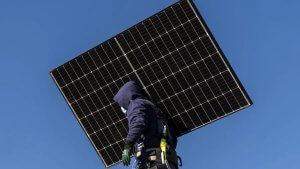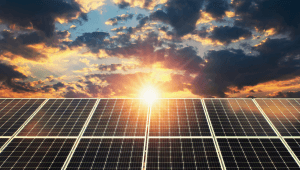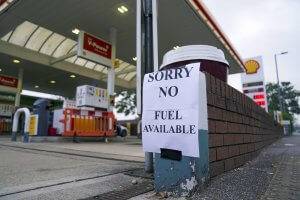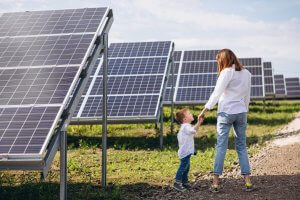
The sun still delivers daylight to solar panels through the rain and clouds. Although solar panels are most productive in direct sunlight, they can still use diffuse or indirect sunlight (radiation) to generate energy. Call 703-851-5853 to learn more
#majeskisolarenergy #mse # #solarpower #solarenergy #renewables
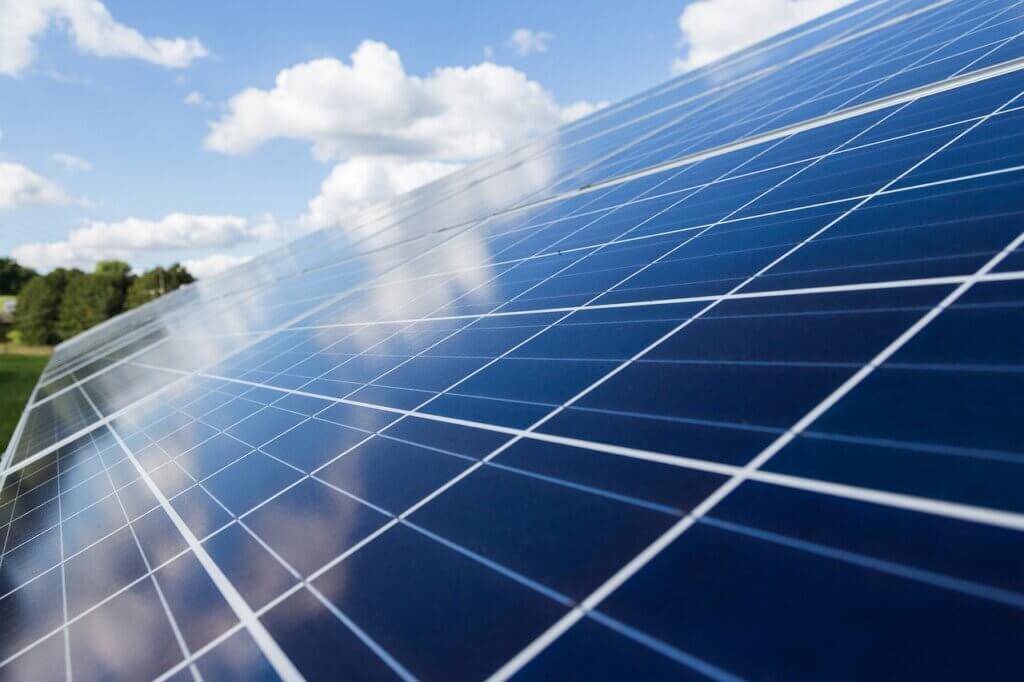
🔎What Is the science behind solar panels and cold temperature?
Even in below-freezing weather, solar panels turn sunlight into electricity. That’s because solar panels will absorb energy from the sun’s abundant light, not the sun’s heat. In fact, cold climates are actually optimal for solar panel efficiency. So long as sunlight is hitting a solar panel, it will generate electricity. Any diminished output during the winter months will primarily be due to heavy snow and shorter daylight hours.
So, how do solar panels normally work? When sunlight particles hit solar panel cells, electrons in the silicon are put into motion. This creates an electric current, which is sent to your home’s electric distribution box to power your essential items. A rechargeable solar battery can help store this electricity so you can still use solar energy at night, during peak electricity usage, or when the grid goes down.
Remember how electrons move around atoms? Electrons are at rest (low energy) in cooler temperatures. When these electrons are activated by increasing sunlight (high energy), a greater difference in voltage is attained by a solar panel, which creates more energy. That’s why solar cells produce electricity more efficiently when it’s colder. In the winter, it’s also less likely for solar panels to reach their peak temperature, or peak power. Once their temperature rises above that peak temperature, solar panel performance decreases.
Research has demonstrated that panels start losing their efficiency around 77ºF. However, this reduced efficiency is balanced out thanks to more daylight hours during the spring and summer months.
Do solar panels work when it rains?
Much like Pacific Northwest winter climates, some places like Georgia, Texas, and Southern California experience a cooler rainy season.
The sun still delivers daylight to solar panels through the rain and clouds. Although solar panels are most productive in direct sunlight, they can still use diffuse or indirect sunlight (radiation) to generate energy.
Rainy days and clouds cause reduced light. But what’s the difference? Direct light is solar radiation traveling in a straight line from the sun down to the earth’s surface. Diffuse light is sunlight that has been scattered by particles in the atmosphere yet still reaches the earth. Thus, the amount of electricity generated is dependent on the density of cloud cover. Though energy production decreases with increasingly dense cloud cover, panels continue working to a greater capacity than one may expect. Rain also helps wash away dust on panels to keep them operating efficiently.
🔋☀️Do solar panels work well in snow?
Solar panels perform better in colder temperatures, but what happens when it snows?
The good news is that even when covered with snow, solar panels can generate electricity. Sunlight still reaches solar panels through snow and keeps solar cells producing energy. Solar panels’ dark, reflective glass accelerates snow melt and it slides off before it hampers performance. Installation racks are also typically tilted up at 30 to 45 degrees, which keeps snow from accumulating (to a point). A light dusting of snow is likely to blow off or disappear rapidly.
Solar panels and cold weather states
🔋Based on research across winter locations, solar is a proven economic energy solution in northern climates. Massachusetts and New Jersey were in the top ten states with solar installations in 2018. In 2019, the Solar Energy Industries Association (SEIA) ranked New York in the top ten states for solar installations. Solar panels are even used in Alaska and U.S. facilities like McMurdo Station in Antarctica. Your home doesn’t need to be in California, Arizona, or Florida to make the most out of solar. Solar panels clearly and consistently demonstrate that they can generate electricity in snow and extremely cold climates.
Power through winter storms with solar battery storage
In winter storms, the grid may not fare as well as solar panels. Power outages can be a frequent occurrence during the winter months, with some outages leaving families in the cold and in the dark for days. Although record numbers of Americans are staying home due to the pandemic, rising global temperatures and increasingly extreme weather events are making it much more difficult to ride out the next storm without reliable back-up power. Installing a grid-connected, rooftop solar panel system with battery storage can give you clean, renewable back-up electricity so you can power through the next blackout. We’ve seen that solar panels are incredibly resilient in the face of extreme weather conditions. By pairing your panels with a solar battery, you can store up your sunny days for a stormy one.
The best time to go solar is now. While solar panels and battery storage can be a significant investment, solar companies like Majeski Solar Energy offer flexible financing options and solar plans as little as $0 down . While solar panels can’t change the weather, they can help you ride it out.
Every winter day is a chance to power through life from the sun. Start taking control of your own energy and keep powered through extreme weather conditions.
Get in touch with one of our expert Solar Advisors today.
Learn More about The Advantages Of solar Energy
majeski
Leave a Replay



About Majeski
Majeski Solar Is a Solar Installer company, and Top Tier Solar Installer in Washington D.C. , Virginia, and Maryland.




